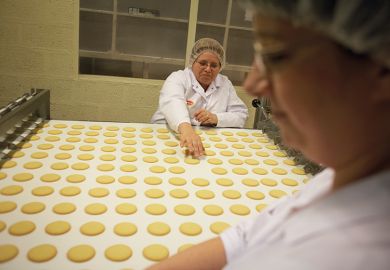The increased use of preprints to publish papers quickly during the coronavirus pandemic has been one of the major features of the crisis in the world of research.
According to the latest data on the Dimensions bibliometric database, about a fifth of publications this year on coronavirus have been preprints, which are typically not peer reviewed.
It has led to predictions that this year may prove a turning point for academic publishing, with preprints becoming a much more important part of the research process.
However, a new study on just how many preprint publications in one discipline tend to end up in peer-reviewed journals or books will be a reminder of the caution that may have to accompany such a shift.
For the study, two researchers based at institutions in Munich analysed the destination of working papers in economics on Research Papers in Economics (RePEc), an established platform for preprints in the discipline.
After looking at almost 29,000 articles published from 2000 to 2012 in four working paper series on RePEc, they found that about 53 per cent linked through to final versions in book chapters or journals.
In order to account for examples where RePEc may not have picked up final publications – due to factors such as a change in research title – they analysed a random sample of articles without a match to determine if they resulted in peer-reviewed research.
When adding the results of this to the other data, they estimated that in total around 75 per cent of the working papers resulted in a journal or book article, leaving a quarter with “no record or evidence of an additional publication outlet”.
The findings give a slightly higher estimate of the proportion of preprint research that ends up in journals and books compared with the few previous studies on the same topic. For instance, the authors say that a 2014 study of almost 750,000 papers on the preprint server arXiv found that 64 per cent ended up in a journal listed on the Web of Science.
However, co-author Klaus Wohlrabe, an economist at the Ifo Institute for Economic Research in Munich, said he was still surprised that the share of papers “not finally published in a journal is so high”.
“Preprints are a mixed blessing,” he said, with the positive aspect that “new or preliminary research can easily [and freely] be made accessible to the public” and it offered a good route for non-established researchers.
“On the other hand I see the risk that scientific rigour might suffer. People might publish preliminary results too fast. This could be potentially problematic in the current crisis,” he said.
“Media articles based on preprints might forget or ignore that there was no formal peer-review process” with the risk that “false or misleading” findings then entered the public domain, Dr Wohlrabe added. “In the long run this can harm the trust in science in general.”
Register to continue
Why register?
- Registration is free and only takes a moment
- Once registered, you can read 3 articles a month
- Sign up for our newsletter
Subscribe
Or subscribe for unlimited access to:
- Unlimited access to news, views, insights & reviews
- Digital editions
- Digital access to THE’s university and college rankings analysis
Already registered or a current subscriber?










